Ever wondered why some websites rank high on Google search results?
Let me show you exactly how it works!
This is a non-technical tutorial.
You don’t need to know anything about blogging, SEO, or web technologies to understand Google’s ranking system.
The principles are very simple and understandable.
It’s just the SEO industry that sometimes makes it sound harder than it really is to sell those pricey products.
I’ve used this understanding of search engines to rank content high across four different blogs and have had more than 5,000,000 readers in the past year or so!
Anyway, let’s jump into it!
4 Things That Impact Google Rankings
Here are four main things that Google considers when ranking websites.
- Trust
- Quality
- Originality
- Timing
I will first walk you through these and then show a concrete example that illustrates all of these.
#1 Trust
Google needs to trust a website to show it high on the search results.
Depending on the niche, having the wrong article at the top of the search results might have fatal consequences.
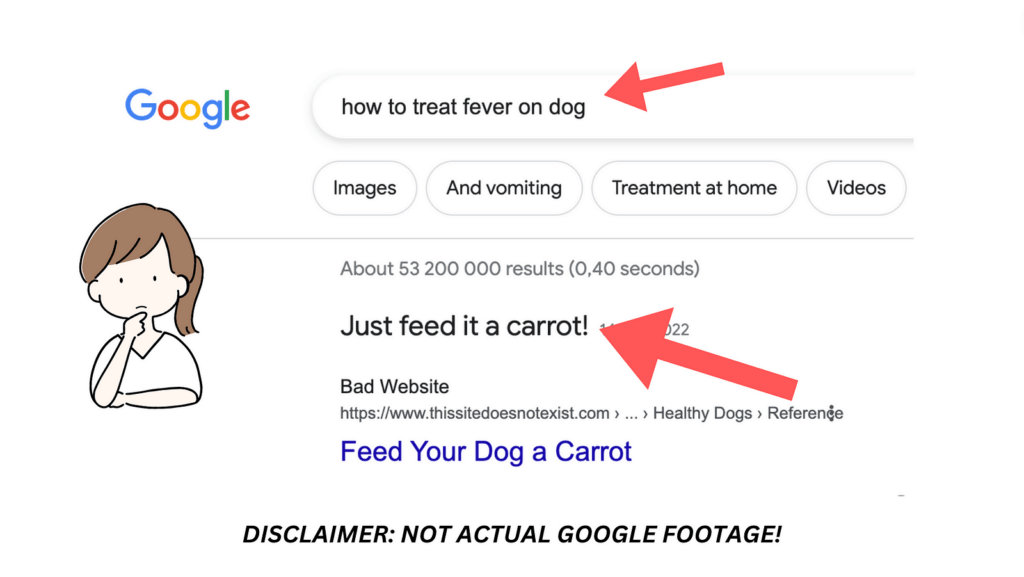
But it’s not just about being safe and sound.
On a higher level, it’s a question about providing value to users.
People who use Google have a problem they’re looking to solve.
Google Search is a product that tries to bring the best solution for the searchers.
But no real person is reviewing each page on the internet. This is simply because it would be impossible due to the sheer amount of content.
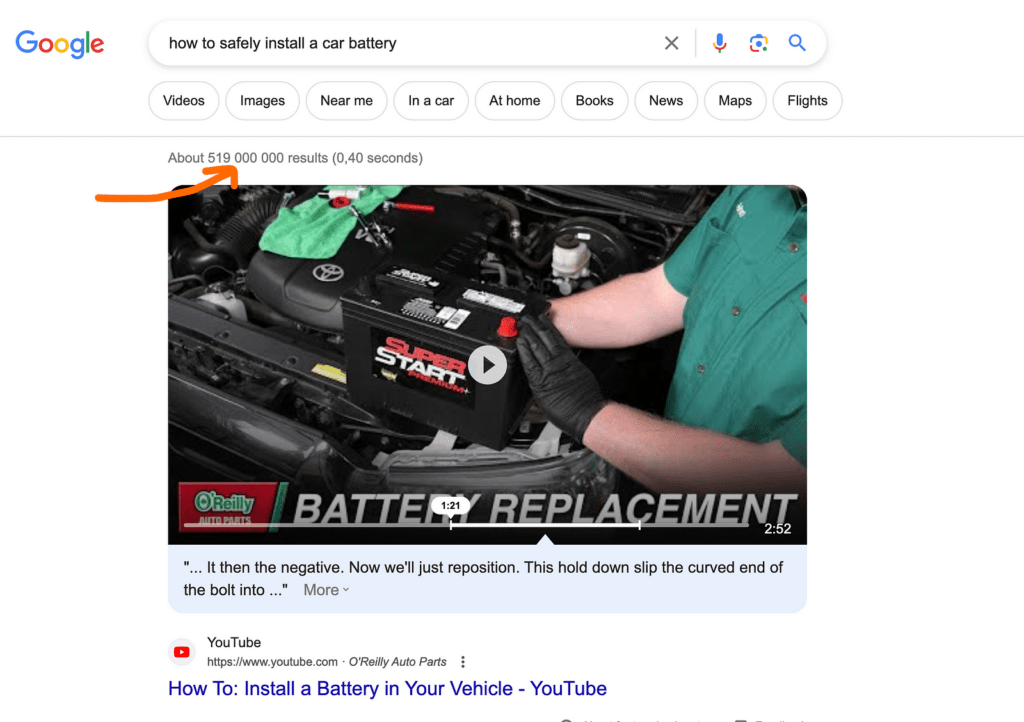
Thus, Google has to have clever mechanisms for predicting what’s the best piece of content for a particular search.
One of the main ways they do this is by “measuring” the topical authority of a website.
In other words, Google is interested in how well a website has covered a particular topic.
The more content the website has, the higher the topical authority.
For example, if a tennis website wanted to rank it high for a search query like “Best tennis shoes”, it’s not enough to create a page about “Best tennis shoes”.
Instead, the site needs to produce hundreds of other tennis-related blog posts to boost the authority of the site and make Google trust it more.

To put it short, the key to building a successful website is writing a ton of blog posts that solve problems for people in that space!
#2 Quality
Another crucial factor that impacts the rankings of web pages is content quality.
In an ideal world, the number one search result would be the best answer to a search question in the world.
But once again, there’s no person actually reviewing each web page.
Also, it would still be highly subjective as to what’s actually a good answer and what’s not.

But to solve this problem, we can make a simple assumption: The more information a page has, the better the answer.

This is exactly what Google seems to do.
This is exactly why you commonly see those 5,000+ word posts rank high.
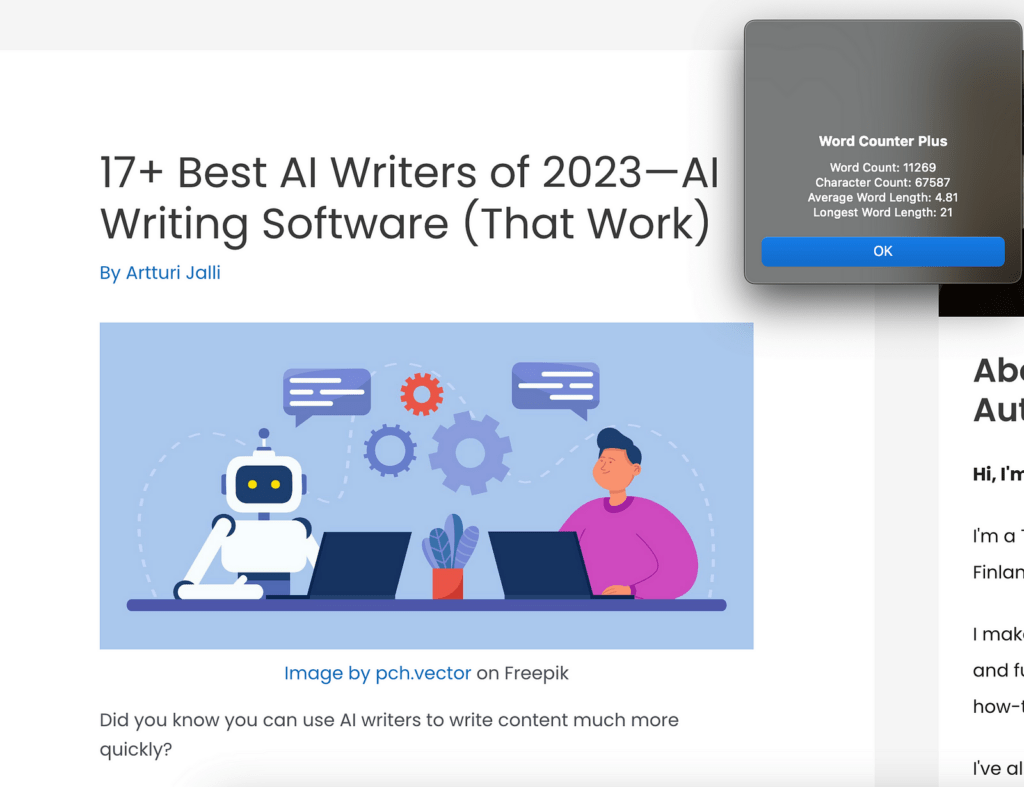
The more detailed and informative the post, the higher the chances for it to solve the searcher’s problem, right?
But obviously, it’s not just about information and long walls of text.
Look at this example:

Looks terrible. These days the internet is so visual that people know they don’t need to read this kind of wall of text.
The key is to provide value—as quickly as possible.
Even though you’d like the visitor to spend as much time as possible on your site, you should still solve their problem as soon as you can.
If it’s just 5,000 words of text, people would need to spend an hour to find their answer.
To make the information accessible for busy people, each page needs to be well structured with headings, subheadings, tables, bulleted lists, and whatnot.
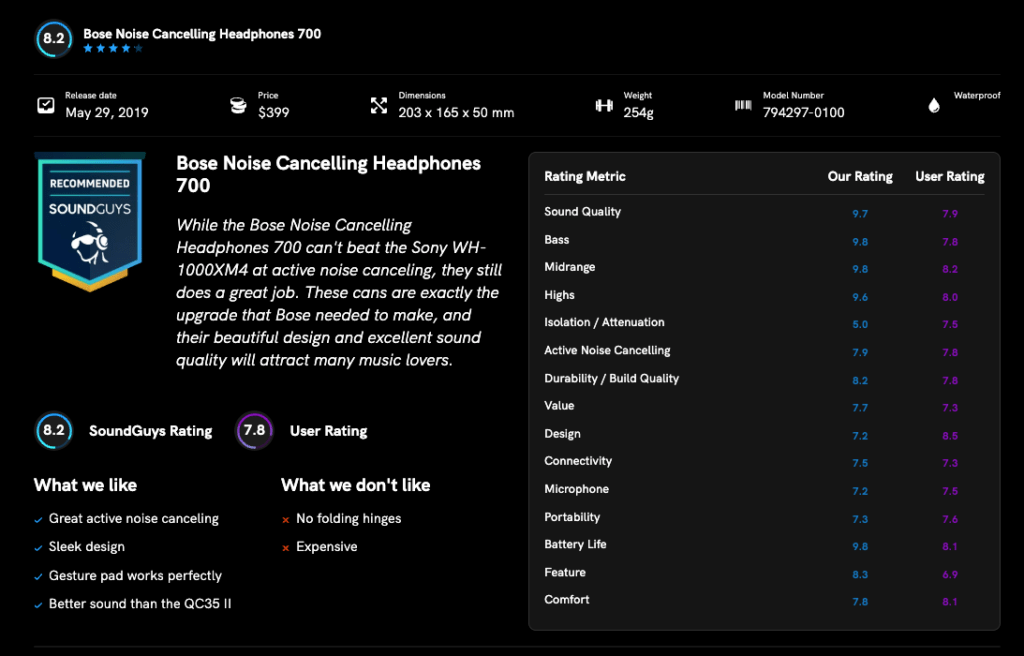
Also, because people don’t want to read walls of text anymore, the page should have a ton of images that support delivering the message.

#3 Originality
The third important ranking factor on Google is being unique and original.
I’m not talking about plagiarism! Instead, there’s a much deeper meaning in being original these days.
Every page and post that Google ranks takes some space from Google’s index.
Google doesn’t want to show pages that just repeat stuff even if the words aren’t the same.
Instead, every page and post should add something new to the internet.
A quality page pours new thoughts, experiences, and knowledge into the internet.
Google is good at detecting this!
A classic example is a product review.
If a website publishes a product review without having used the product, it cannot add anything new to the internet.
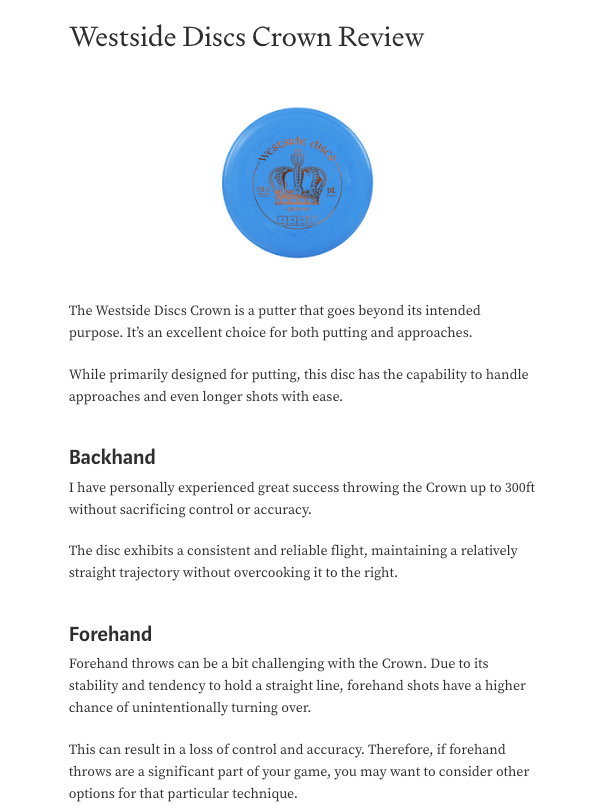
These types of posts will practically never rank high. Heck Google might even not show them in the search results at all!
But if the review is actually written by someone who has tried the product and clearly demonstrates the use of the product in the post, that’s original and unique and Google absolutely loves it.
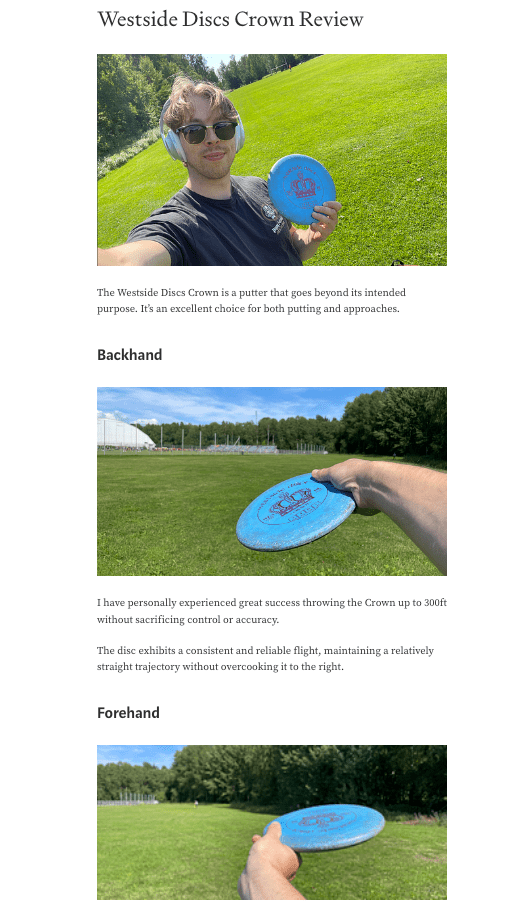
#4 Timing
Last but not least, timing matters.
If a website is the first ever to cover a particular topic, they have a huge advantage.
This has happened to me a bunch of times. These are the only scenarios in which my post has ranked in the top 10 in less than a week. Otherwise, it always takes much longer.
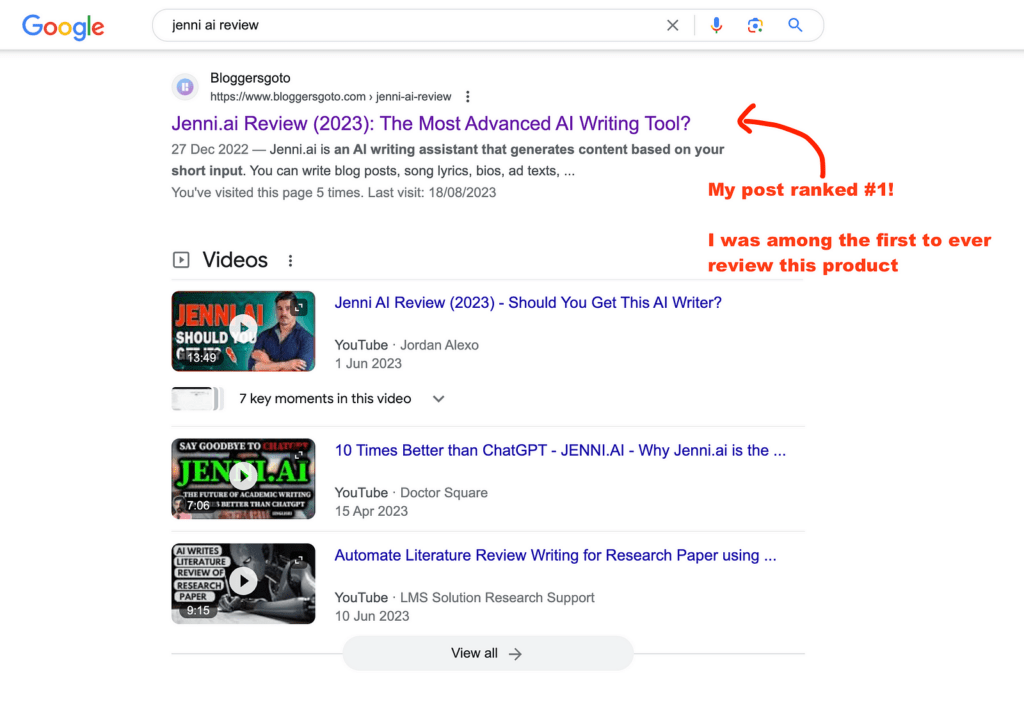
The reason why timing matters is simple. If there are no other resources, Google has no other options but to push that one page.
For example, think about a topic like “AI email writing tools”. This is a new concept that has existed only for a year or so.
By looking at Google Trends, you can see that the topic has search volume since 2022 Sept.
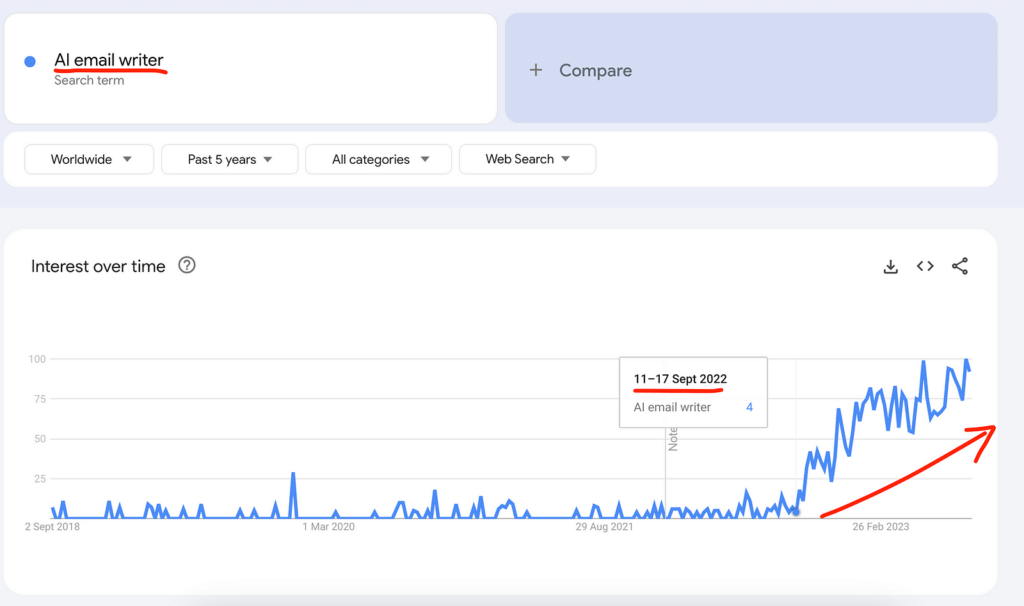
Also, by looking at Google you can see that there’s basically no competition in search results.
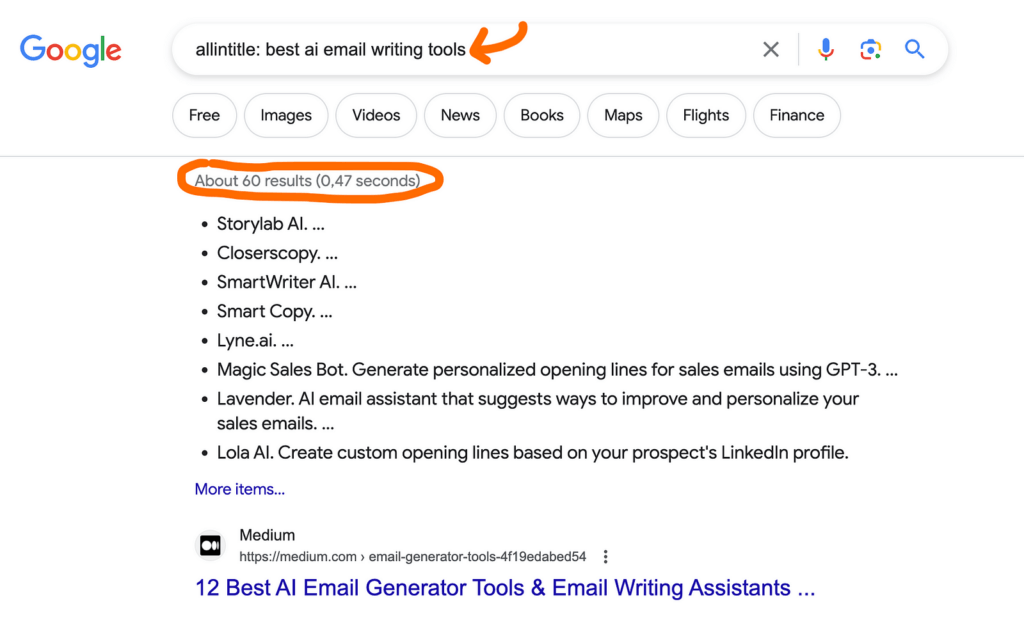
But then, consider a topic like “Photo editors”. Those have existed for a long time.
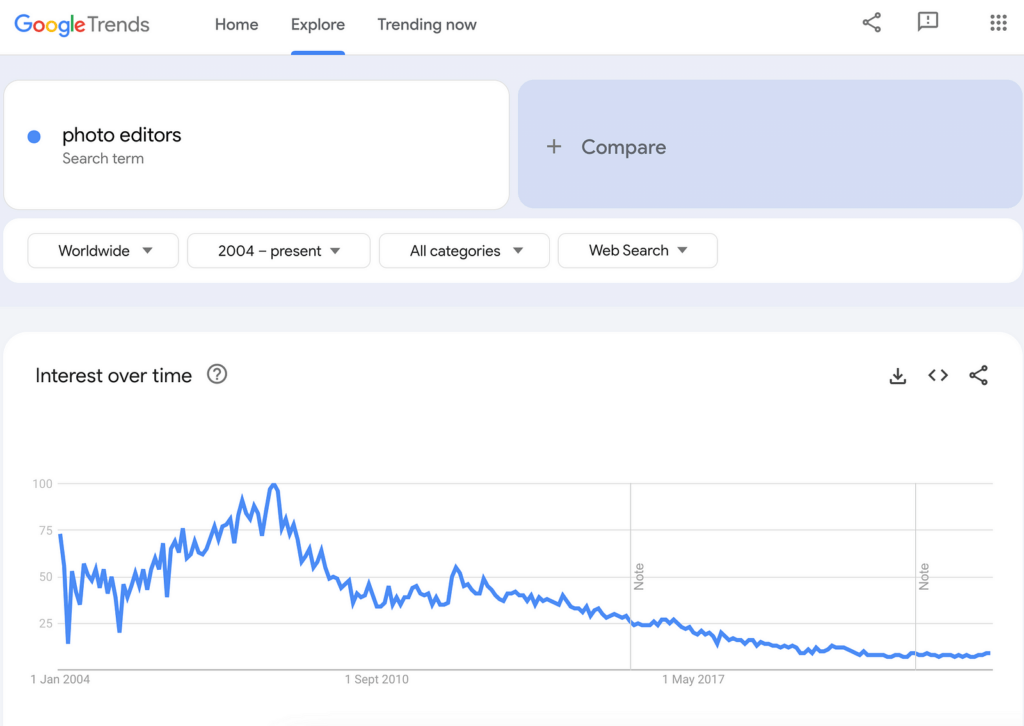
There are dozens of established 10+ years old websites with thousands of pages and posts about photo editors and how to use those.
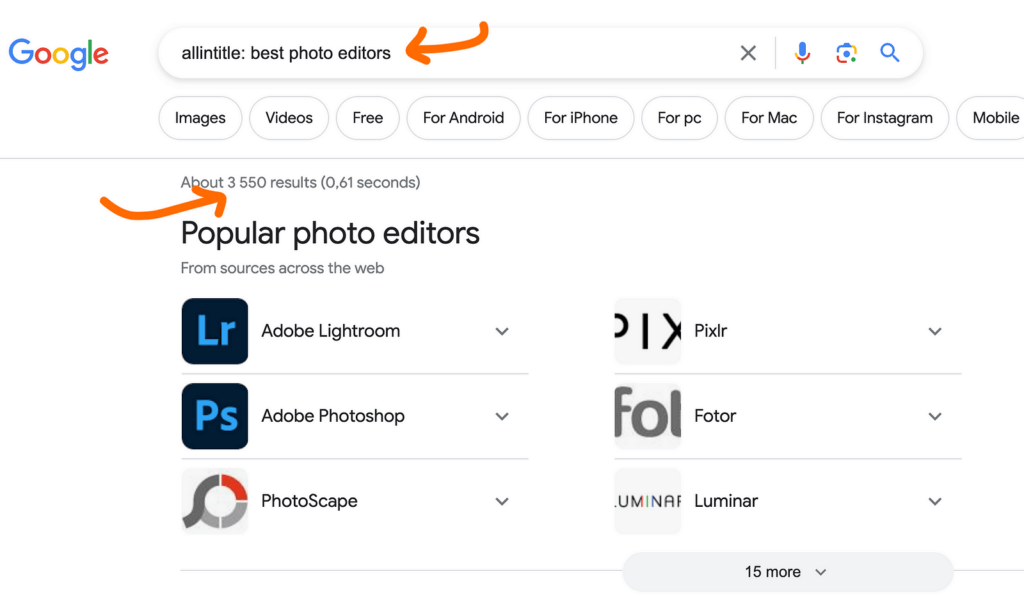
Google trusts those reputable review sites so much that it’s next to impossible to outrank those in the search results.
So if you have a new website with just a bunch of photo editor reviews, good luck on trying to beat those sites with thousands of reviews!
Now that you have a good idea of how Google’s ranking system works, let’s consider a concrete example.
Example
Let me show you a concrete example.
Let’s open up Google and search for “Bose NC 700 HP Review” and see what pops up.
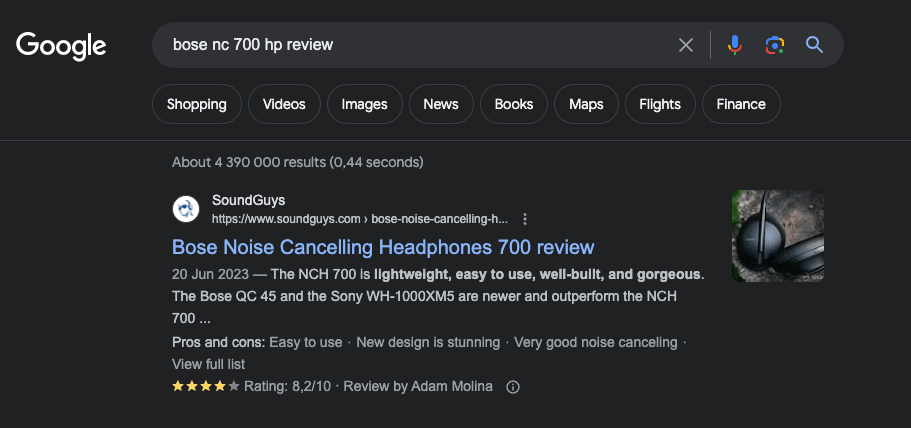
Looks like a harmless and quick review that anyone can put together, right?
But let’s open up the post to see what it looks like and why it’s exactly sitting at the top of the Google search results.
#1 Example: Trust
First and foremost, the main thing that Google needs before ranking a page is trust.
As explained earlier, this happens by building topical authority, that is, writing a ton of niche-specific blog posts.
So let’s see how many posts this particular site has written:
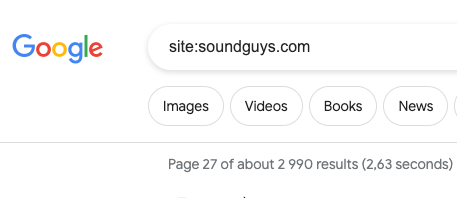
As you can see, the number of posts is a staggering 3,000! Obviously, this doesn’t factor out those auto-generated junk pages that might be indexed.
But we’re still talking about a ton of quality posts like this.
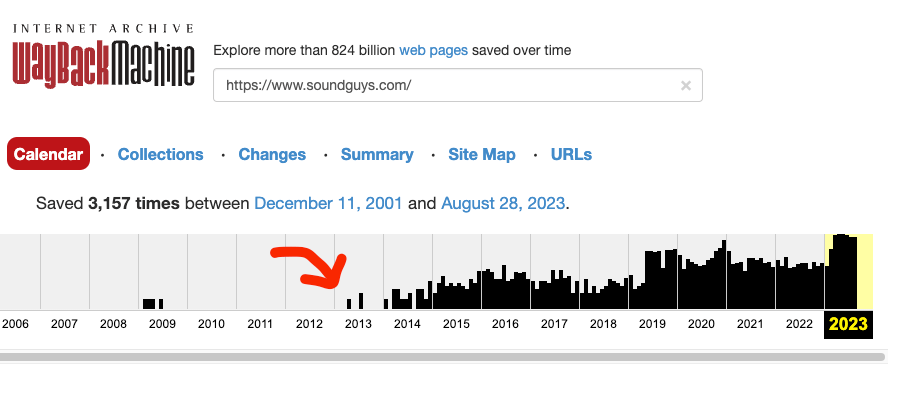
And no wonder why!
Based on Wayback Machine, this website has been publishing comprehensive blog posts for the better part of a decade.
Thus, Google has had time to familiarize itself with this website’s content for 10+ years and build trust.
These two are already giving you a great idea as to why this particular page is doing so well in the search results.
But this is not all. No matter how trusted a website is the quality is not there. If this website produced a crappy piece of content, it wouldn’t rank no matter what.
So let’s take a closer look at the actual post.
#2 Example: Quality
The first thing I notice is that this post is super long. Almost 4,000 words in length
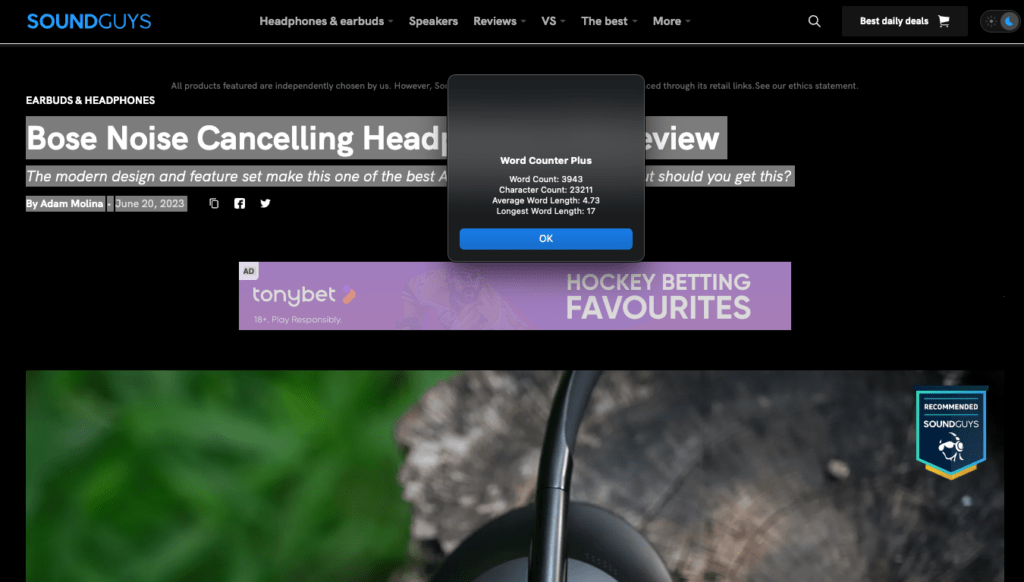
Coming up with 4,000 words of text for headphones is already a skill in and of itself.
But that’s good. This post probably covers everything one can imagine.
Also, a long post like this is already more informative than 99% of other similar reviews, right?
But it’s not all about text and length. The content needs to be enjoyable to read and accessible.
The second thing that I noticed when reading the post is that there’s this nice table that summarizes the main features and gives a rating for them.
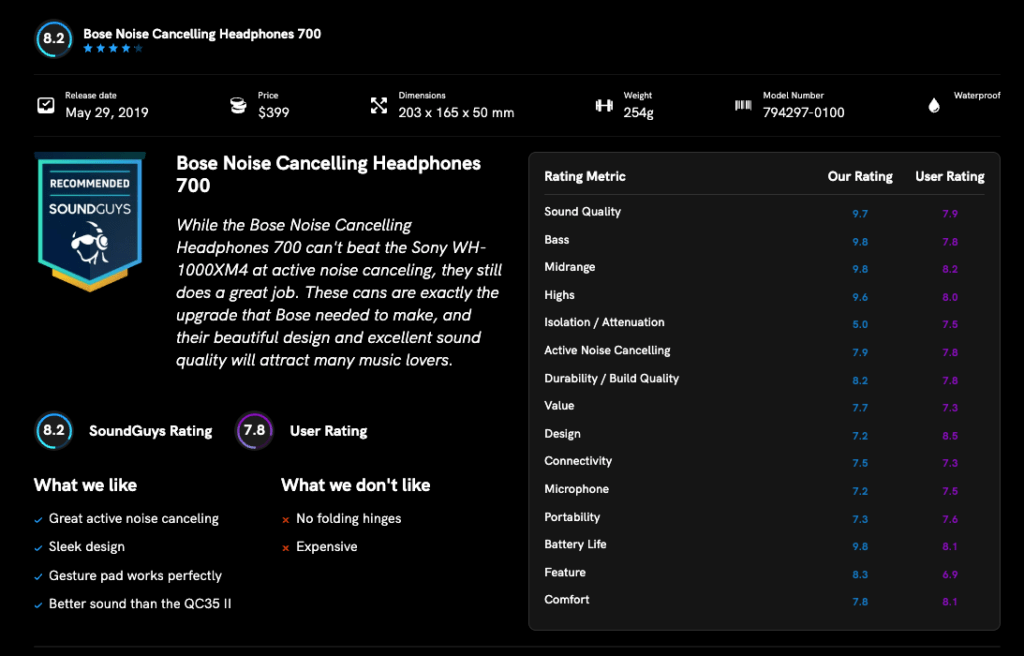
This makes the post easy to read for busy people who don’t worry about the details or who are in a hurry.
This can help them make the right purchase decision.
The next thing that I think is just awesome is that this post is not just a blog post but there’s also a YouTube video that reviews the product.
When embedded into the post, this gives the post an even more professional look and the readers can easily jump to the video instead of bothering to read the content.
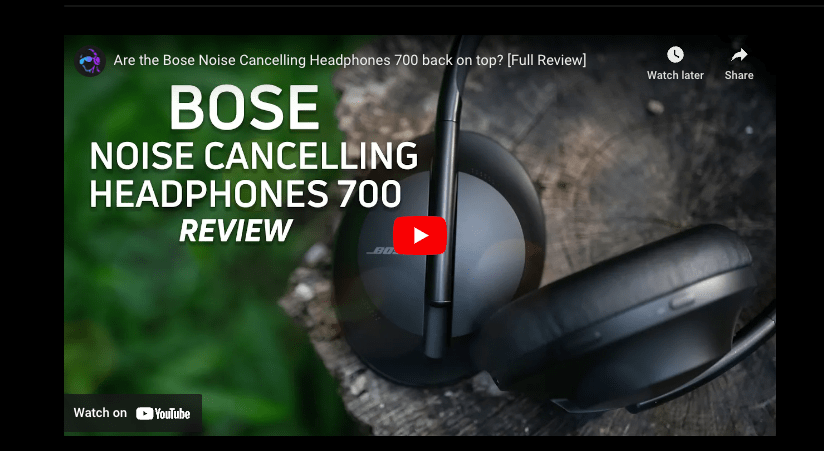
Last but not least, the content is structured nicely. It has headings, subheadings, short paragraphs, and images that support understanding the features of the headset.
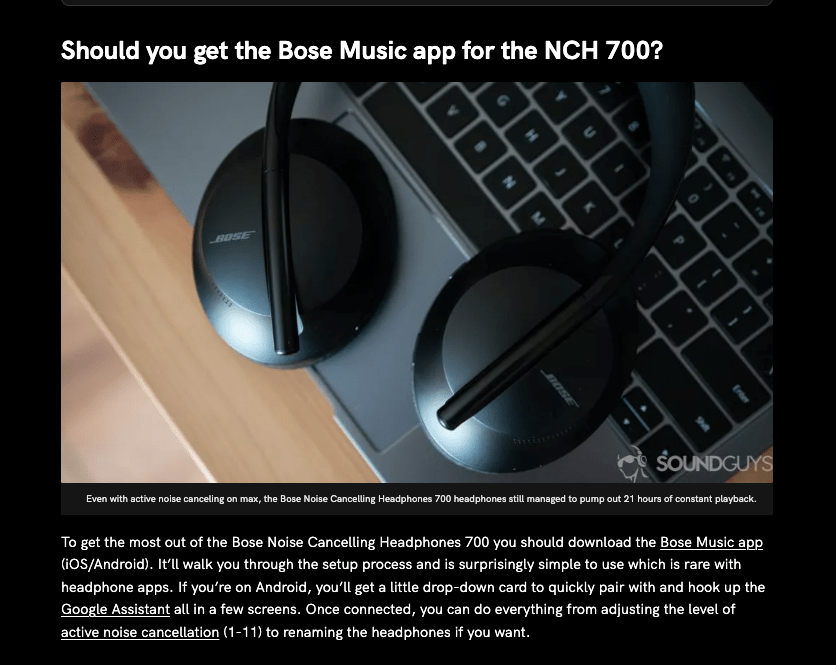
It even has an FAQ section that answers the most common questions related to this headset.

What a masterpiece!
#3 Example: Originality
The above characteristics of the post were already impressive.
But if you think about it a second, this data could be something that one could gather from other reviews.
So putting together a competing post might be surprisingly “easy”.
This is where the uniqueness and originality kicks in.
To rank high on Google, the post needs not to just repeat stuff but actually add something to the table.
So let’s see how this post does it!
Firstly, the images that are in the post are clearly taken by the authors.
Those images are nowhere else to be found. They are definitely not stock images or product catalog images.
Instead, the images support delivering the message which in this case means showing the features of the product.
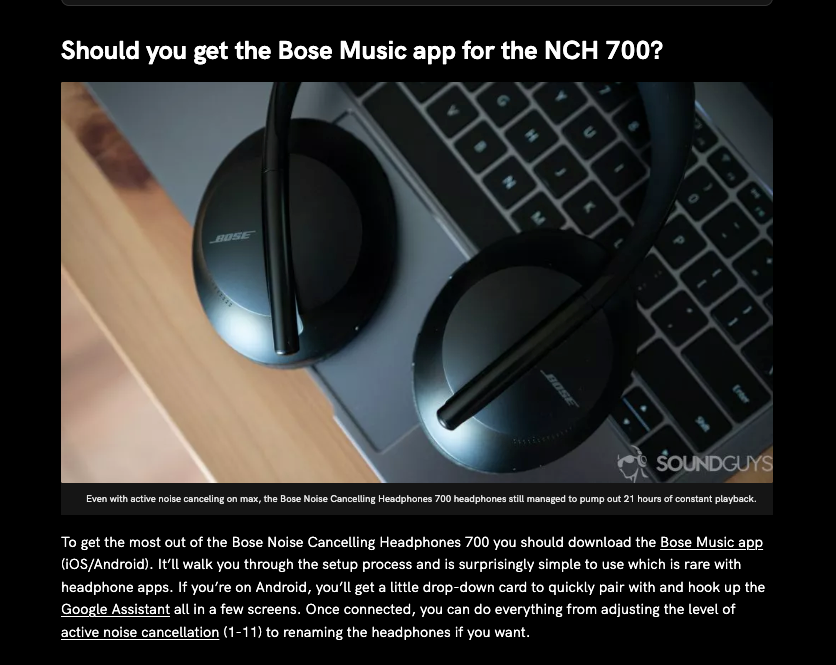
And this is where it gets to an entirely different level.
The post has a frequency response chart and other spectrums about the headset.
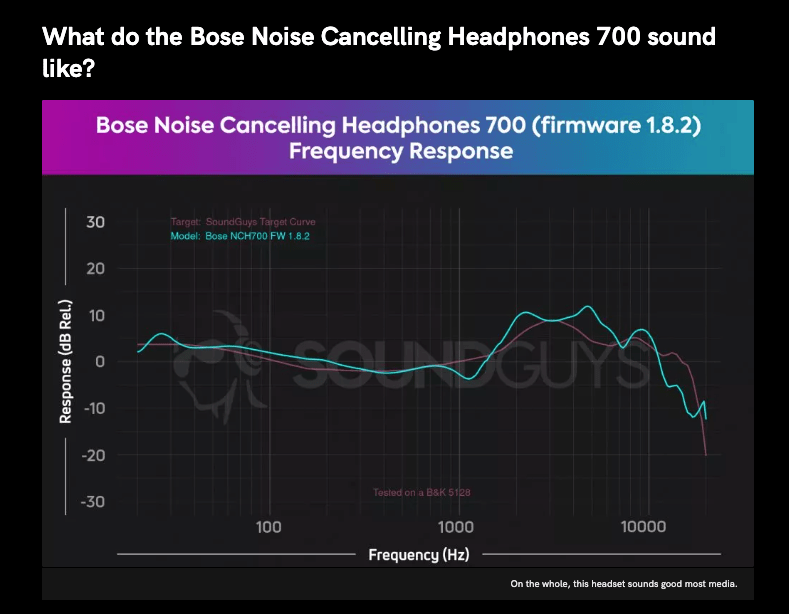
The way this team has put these charts together is incredible.
They have a dummy head for which they’ve inserted a pair of microphones and then the headset.
Then they recorded the microphones to see what the sound looked like in the ears of the dummy.
Talking about dedication!
But this is what it takes in such a competitive niche. If you wanted to have any chances of competing against this post, you’d need to do at least the same things as these guys!
#4 Example: Timing
Last but not least, as I taught earlier, timing is key in ranking on search results.
The Bose headset that this review is about was launched in 2019.
Now, let’s see when this post was published:
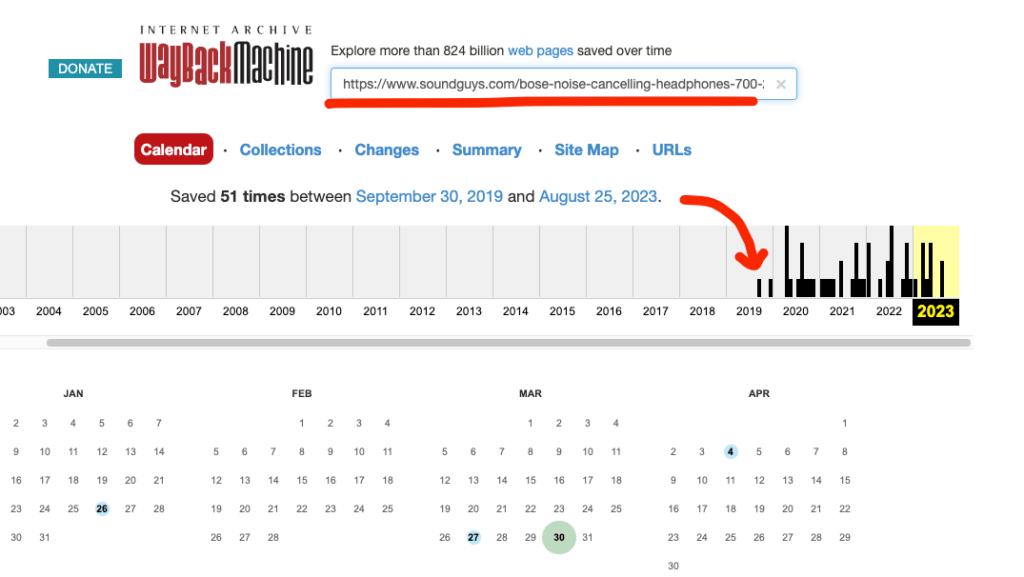
2019 indeed.
So not only did these guys put together an awesome post with thorough analysis and unique value.
But they were probably among the first people to ever write a review about this product.
This is all why they’ve deserved the number 1 spot on Google.
Wrap Up
As a beginner blogger or affiliate marketer it is hard to see what it really takes to write a post that ranks.
In some niches, all it takes is 30 minutes of research and an hour or two of writing.
But in most commercial and competitive niches it takes much more. It can easily require years of hard work and writing tons of quality blog posts to build trust.
That being said if you read this post because you want to start a website, blog, or affiliate site, don’t give up! It’s a journey that takes years of hard work. There are no free lunches.
For me, it took more than a year of full-time work before earning anything significant from my blog.
Thanks for reading. Happy writing!
